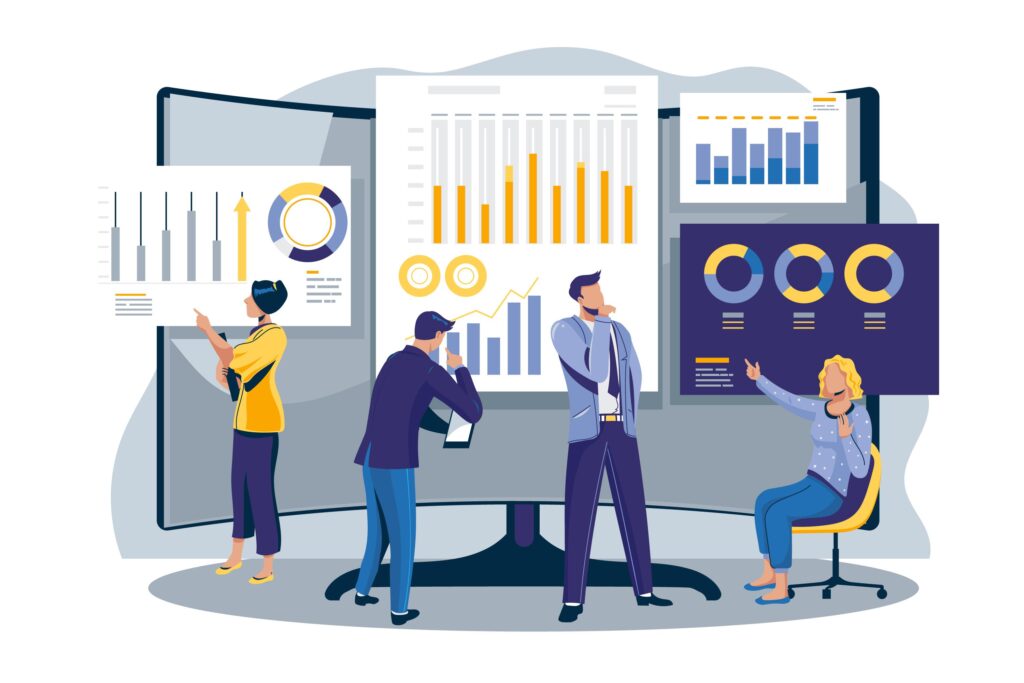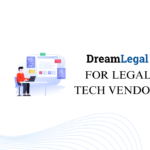Introduction
In a rapidly evolving legal landscape, where technology is transforming every facet of the profession, DreamLegal stands as a beacon of trust and innovation for legal professionals. DreamLegal’s comprehensive legal tech market and directory are not just tools—they are companions in the journey toward a more efficient, informed, and cutting-edge practice. By offering meticulously curated resources, expert insights, and an unparalleled network of tech solutions, DreamLegal empowers lawyers, firms, and legal departments to seamlessly navigate the complexities of modern legal tech. With DreamLegal, you’re not just adopting technology; you’re embracing the future of law with confidence and clarity.
Our efforts
We understand the complexities and challenges that legal professionals face when adopting new technology. Our tailored services guide you through every step of the legal tech procurement process. From conducting thorough Needs Assessments to ensure you’re selecting the right tools through Vendor Research and the crafting of compelling Requests for Proposals (RFPs) to Vendor Evaluation, Contract Negotiation, and Purchase Decision support, DreamLegal is your trusted partner. We simplify the journey, ensuring that your tech choices are not only optimal but also aligned with your unique needs and goals.

Needs Assessment:
At the outset, we conduct a comprehensive Needs Assessment to understand the specific requirements and challenges faced by your legal team. This step ensures that the technology solutions you consider are precisely aligned with your goals and operational needs. The value we bring is clarity and focus—helping you avoid the pitfalls of investing in unnecessary or ill-fitting technology. By identifying your exact needs, we pave the way for smarter, more strategic tech investments.
Vendor Research:
Once your needs are clearly defined, we delve into Vendor Research to find the most suitable legal tech providers for your requirements. Our extensive market knowledge and industry connections enable us to identify vendors that offer the best solutions, pricing, and support. The value of this service lies in saving you time and effort, while ensuring you have access to the most relevant and innovative options on the market.
Request for Proposal (RFP) Development:
Crafting a compelling Request for Proposal (RFP) is critical to attracting the right vendors. We assist in drafting RFPs that are clear, comprehensive, and tailored to your needs, ensuring that vendors can respond with proposals that meet your expectations. We maximize the quality of responses you receive, enabling you to confidently make informed decisions.
Vendor Evaluation:
After you receive vendor proposals, our vendor evaluation helps you compare and assess them against your criteria. We provide detailed analysis and scoring, focusing on key factors such as functionality, scalability, support, and cost-effectiveness. The value here is in reducing complexity, providing you with a clear, objective basis for selecting the best vendor for your needs.
Contract Negotiation:
Negotiating contracts with legal tech vendors can be challenging. We offer expert Contract Negotiation support to ensure you get the best possible terms, including favorable pricing, service levels, and support commitments. We are protecting your interests, reducing risks, and securing agreements that deliver maximum value and flexibility.
Purchase Decision Support:
Finally, we assist with Purchase Decision Support, guiding you through the final decision-making process with a focus on long-term value and strategic fit. We help you weigh all factors, from total cost of ownership to vendor reputation and future-proofing your investment. The value of this service is in making a confident, informed decision that aligns with your firm’s or department’s strategic objectives, ensuring successful technology adoption.
Change Management:
Successfully integrating new technology requires more than just the right tools—it requires effective Change Management. We support your organization in Adoption, providing tailored Employee Training programs that equip your team with the skills and knowledge they need to use the new systems effectively. We also address other aspects of change management, such as stakeholder communication, transition planning, and ongoing support. We ensure a smooth transition, minimizing disruptions and maximizing the return on your technology investment by fostering user engagement and acceptance.
Our word to legal professionals
Law firms

Law firms are moving away from piles of paper to smart, digital solutions. With tech tools like case management systems and digital signatures, what used to take hours now takes minutes. The result? More time for clients and less stress for everyone.
Most common technology trends for law firms
Law Firms primarily rely on case management systems, which serve as the backbone for organizing and managing cases, documents, and deadlines. Document automation tools are also widely used, allowing firms to generate legal documents based on templates, reducing time spent on repetitive tasks. Additionally, e-discovery tools are crucial for searching, reviewing, and managing electronic documents during litigation, making the process more efficient and cost-effective.
Enterprises

For big companies, legal tech helps keep everything in order. Whether it’s managing contracts, staying compliant with laws, or reviewing documents with AI, tech makes the legal department more efficient. Plus, it helps legal teams show clear results to the management.
Most common technology trends for enterprises
Enterprises use contract lifecycle management (CLM) software to streamline the creation, negotiation, execution, and renewal of contracts. Compliance management software is another essential tool, helping legal teams track and ensure adherence to industry regulations and company policies. To keep legal expenses in check, many enterprises use e-billing systems, which manage and track invoices from external law firms, ensuring transparency and control over legal spending.
Inhouse Legal Teams

For in-house legal teams, legal tech is a game-changer in keeping operations smooth and efficient. Whether it’s managing legal matters, organizing documents, or ensuring timely approvals, technology makes it easier for legal teams to handle their workload with precision. These tools not only help in keeping everything organized but also allow in-house teams to deliver faster and more accurate results, ultimately supporting the business more effectively.
Most common technology trends for inhouse legal teams
In-house legal teams rely on matter management systems to track and manage all ongoing legal matters, ensuring that nothing is overlooked. Document management software is another essential tool, providing a secure, centralized repository for legal documents, which simplifies retrieval and improves collaboration. E-signature tools are also popular, streamlining the signing process and reducing delays in finalizing agreements. Together, these technologies enhance the efficiency and effectiveness of in-house legal teams.
Individual Practitioners and advocate chambers

For solo lawyers and advocate chambers tech is like having a reliable assistant. Virtual consultations, automated document creation, and legal research tools make it easier to run your practice alone. It helps you stay organized and competitive, even without a big team.
Most common technology trends for individual practitioners and advocate chambers
For Individual Practitioners, practice management software is a game-changer, offering all-in-one solutions for managing cases, billing, and client communication. Legal research platforms provide access to extensive legal databases and resources, enabling solo lawyers to conduct thorough research on case law and statutes. Additionally, online payment solutions make it easier for individual practitioners to collect fees from clients through digital invoicing and payment options, streamlining the financial aspect of their practice.
Startups

In the fast-paced world of startups, legal tech is like a fire extinguisher for those unexpected flare-ups. Whether it’s navigating IP issues, whipping up a privacy policy, or automating contract creation, tech helps startups move at the speed of innovation. Plus, with legal tech, you can avoid those “uh-oh” moments with investors and stay focused on your growth trajectory.
Most common technology trends for startups
Startups turn to IP management tools to protect and manage their intellectual property, including patents, trademarks, and copyrights. Contract automation software is another popular choice, simplifying the process of drafting and managing contracts with investors, employees, and partners. Privacy policy generators are also commonly used by startups to quickly create legally compliant privacy policies for their websites and apps, ensuring they meet regulatory requirements.
Government Departments

In government, legal tech helps cut through the red tape. E-filing, digital records, and AI tools make processes faster and more transparent. It helps public servants deliver services more efficiently and with less paperwork.
Most common technology trends for government departments
In Government Departments, e-filing systems are widely used to facilitate the electronic submission and management of legal documents, reducing paperwork and improving efficiency. Case management systems tailored for government use help track and manage cases handled by government attorneys, ensuring proper documentation and workflow. Compliance monitoring tools are also critical, helping government agencies ensure they adhere to local, state, and federal laws.
Judiciary

In the courts, tech is making a big difference. Virtual hearings and digital case files help judges and lawyers access information quickly and make decisions faster. It’s helping to reduce delays and ensure that justice is served more efficiently.
Most common technology trends for judiciary
Virtual hearing platforms have become essential, especially in the post-pandemic world, allowing for remote court proceedings via video conferencing. Legal analytics tools are also gaining traction, providing judges with data-driven insights by analyzing past cases and rulings to assist in decision-making.
Our welcome note
DreamLegal stands as a trusted partner for legal professionals across the spectrum. Whether you are a law firm striving for operational excellence, an enterprise ensuring compliance, a solo practitioner seeking efficiency, a startup aiming for scalability, a government department focused on accountability or a judiciary dedicated to justice—DreamLegal provides the tools, insights, and support needed to thrive in this digital age. Our comprehensive services, from workflow assessments to change management, ensure that your legal tech journey is not only smooth but transformative. With DreamLegal, you’re not just adopting technology but embracing a future where innovation and the law work hand in hand.


